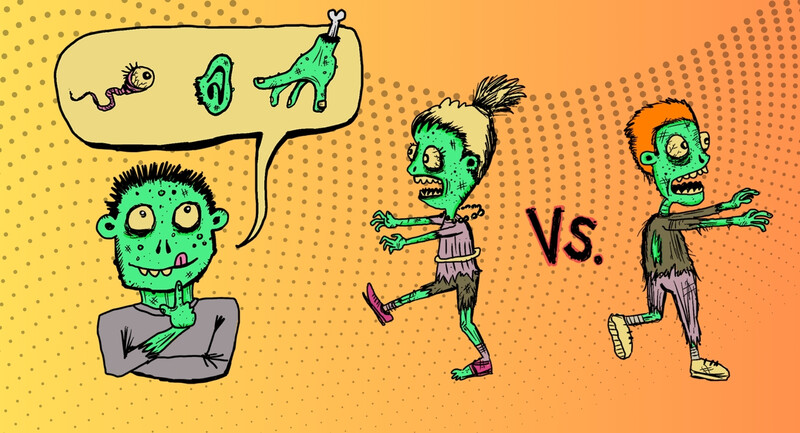This is the first in a series of four articles about how educators can support literacy by bringing knowledge-building into their classrooms. Read the second, third, and fourth posts. In recent years, the phrase “science of reading” has taken hold in education circles across the United States. Teachers, school and system leaders, instructional coaches, curriculum developers, and decision-makers at all levels have revisited their understanding of early reading instruction, particularly the role of foundational literacy skills (often abbreviated to “phonics”) that link oral language to written language.
As education researchers, we have welcomed the increased attention to scientific research on reading. But we also believe the current understanding of that “science” is often too narrow, in part because it gives little attention to building knowledge. As our earlier statement explains, research shows that the importance of foundational skills is beyond dispute and should no longer be a source of discord. However, building knowledge of the natural and social world is also essential to developing strong readers who can not only decode words but also comprehend what they are reading. Consider this sentence from Gail Gibbons' Bats (1999): "In places where it gets cold in the winter, some kinds of bats migrate to warmer climates; others use their roosts to hibernate until spring." Literacy requires more than recognizing the words in this sentence. Capable readers draw on background knowledge to know what it means to migrate and what it means to hibernate, which allows them to make sense of and gain understanding from the sentence and its support for the author’s larger message about the tremendous variation in bat species.
This type of literacy, which includes the ability to understand vocabulary in context, make inferences, and learn from what is being read, is central to the academic standards we expect young people to attain. The writers of such standards expect students to acquire knowledge through texts beginning in the early years of elementary school. Yet year after year, state tests find large portions of students—often around half of them—not meeting grade-level expectations for reading achievement, often due in part to limitations of vocabulary and background knowledge.
Knowledgeable readers are more effective readers, and more effective readers can more easily build knowledge for reading and writing.
We believe it’s critical that educators incorporate all that we know about reading and writing development into curriculum choices and instructional practice. The scientific research on reading and writing is clear: foundational skills including phonemic awareness, knowledge of sound-letter relationships, decoding and spelling skills, and fluency are necessary, but not sufficient for students to become fully literate. Systematically building knowledge is also vital, so students can understand and apply what they learn from the words on the page and can write in a way that shares their knowledge with others. In combination, these components build on and strengthen one another. Knowledgeable readers are more effective readers, and more effective readers can more easily build knowledge for reading and writing.
So how can educators act on these insights? What does the importance of knowledge-building mean for everyday classroom literacy instruction?
A rich body of research points the way. Our group of 14 scholars has distilled this evidence base into 10 practical recommendations for educators. These apply to students of all ages and skill levels. Building knowledge need not—and should not—wait until students possess some level of foundational reading skills. These recommendations, although certainly not exhaustive, can help educators value and build on the unique knowledge and assets that every student brings to the classroom. And they can support all students to joyfully engage in language- and content-rich experiences that nurture comprehension and writing development, expand vocabulary, spark curiosity, and build knowledge about the natural and social world.
Build Knowledge Through Language
1. Build from Birth: Knowledge-building starts in infancy. Through interactions with caregivers and play, young children develop oral language in their home language(s) as a key mechanism for building their knowledge of the world around them. Teachers and families can create language-rich environments that build knowledge and motivate young children to want to learn to read.
2. Grow Vocabulary: In addition to learning vocabulary through explicit instruction, students of all ages learn through incidental exposure. Teachers and families can create language-rich environments that encourage such encounters, including by reading informational texts aloud.
3. Lead Discussions That Promote Student Talk and Comprehension: Talk matters, and the type of talk students and adults have matters even more. Educators can intentionally lead the types of discussions that research shows can build and buttress knowledge.
Expand Access to Texts That Build Knowledge
4. Give Read-Alouds a Central Role: Through read-alouds and text-based discussion, young students can engage with more complex ideas and vocabulary than what they can yet read themselves, building the knowledge they need to engage with more sophisticated texts in the future.
5. Foster Foundational Skills: Knowledge-building and foundational skills development complement and strengthen one another at all levels of instruction and study. Secure word-reading and spelling are essential for students to build content knowledge through reading, and content and vocabulary knowledge contributes to word-reading and spelling growth.
6. Apply Strategies for Sense-Making: In the context of building knowledge, targeted strategies instruction can equip students with ways to access textual information that support understanding and learning from text as well as to convey information through their own writing. This includes a range of strategies that increase cognitive engagement, such as attending to the structure of a text, previewing, summarizing, and others.
Set the Conditions to Build Knowledge
7. Engage and Excite: Build on students’ interests and curiosity to maximize cognitive engagement. Several promising practices are based on building knowledge and providing opportunities for students to apply what they learn in a real-world context.
8. Curriculum Counts: Given the importance of background knowledge to comprehension, a curriculum that is not only knowledge-rich, but also coherently sequenced and well-implemented will set students and educators up for success.
9. Use Texts as Tools: The types of texts students read and write are important when it comes to building knowledge and learning to convey knowledge to others. Engaging students in more reading and writing of informational genres is important, but well-chosen literary texts, such as biography or historical fiction, can significantly enrich student knowledge of places, times, and topics and impact their reading and writing.
10. Safeguard Science and Social Studies: Even the most content-rich English language arts curriculum cannot substitute for strong science and social studies instruction—and such instruction can help build literacy skills. Schools can make time for science and social studies by shifting away from common practices that research does not soundly support and by looking for opportunities to address multiple standards simultaneously.
The purpose of this article has been to lay the groundwork for a more fulsome look—from the teacher’s lens—at each of the 10 recommendations for building background knowledge. Over the next three weeks, we will unpack each of these strategies, identifying some of the research behind them and examining implications for reading instruction and classroom practice.
An Essential Reading List for Literacy Research
Scholars from the Scientific Advisory Committee share freely-accessible articles on knowledge-building and comprehension.









